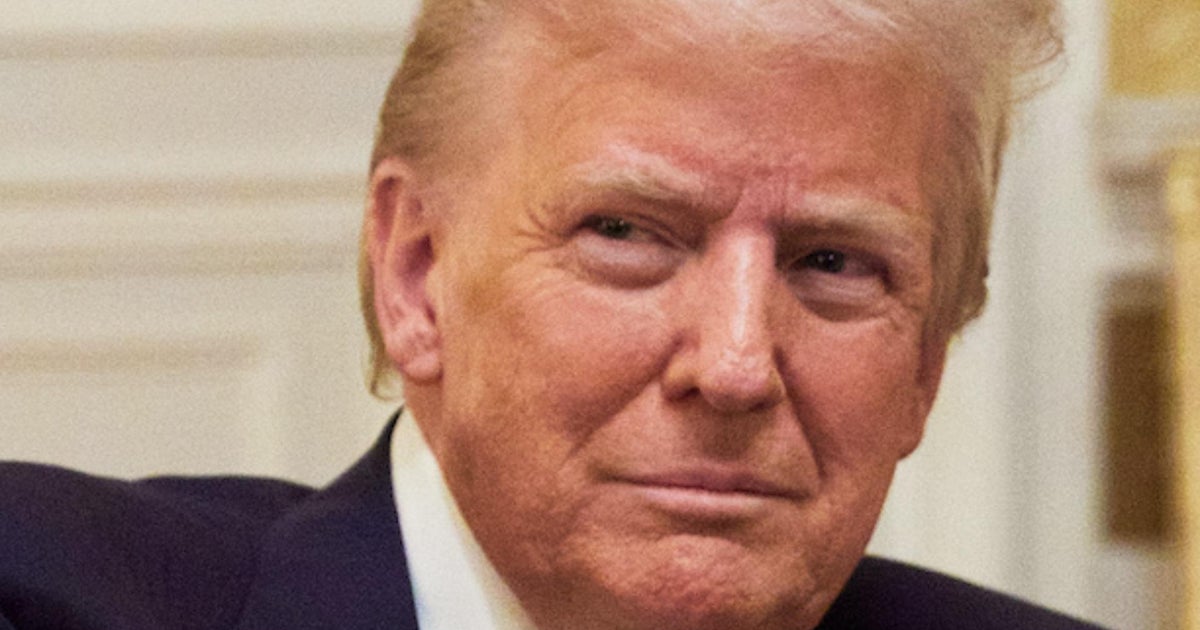Darren Woods, chairman and CEO of Exxon Mobil, urged the new Trump administration to avoid turbulent changes in climate policy — and he urged the president-elect to drop carbon border taxes favored by some Republican lawmakers to give, to reject.
In an interview with POLITICO, Woods indicated that one of the energy industry’s most powerful players could have a moderating influence in Washington even as Republicans seek to dismantle Biden-era climate policies. The future of the Inflation Reduction Act and other clean energy programs is one of the key questions hanging over the new administration.
“I don’t think the challenge or the need to address global emissions is going away,” Woods said. “Anything that happens in the short term would just make the longer term that much more challenging.”
Woods made the comments by phone during the COP29 climate negotiations in Baku, Azerbaijan, just days after President-elect Donald Trump won the White House on a promise to boost fossil fuel production in the United States and change policies of Biden, aimed at reducing greenhouse gas pollution. and accelerating the growth of clean energy. Trump is widely expected to withdraw the US from the 2015 Paris climate accord, and his election has thrown climate diplomacy into disarray at the annual talks.
Despite predictions that the world is on track to hit a new annual high temperature for the second year in a row, Trump has repeatedly called climate change a “hoax,” demonized policies favoring electric vehicles and denounced wind and solar energy .
But some members of his party, including a significant number of Republicans in Congress, have spoken out against the wholesale repeal of the IRA, citing the economic benefits it has brought to their districts.
Woods, who took the top job at Exxon after his predecessor Rex Tillerson became Trump’s first secretary of state, said he opposed carbon border tariffs, which would impose fees on imports produced through processes that emit higher carbon emissions than in the US.
Those kinds of tariffs have been touted by Robert Lighthizer, Trump’s first trade representative, and by some Republicans in Congress who said they would benefit U.S. companies whose products are cleaner than those of their foreign competitors. It is widely seen as a response to the European Union’s carbon border adjustment mechanism, which would tax imported raw materials from countries that do not price carbon emissions.
“I think it’s a bad idea. It’s a very bad idea,” Woods said. “I think changing carbon limits will introduce a whole new level of complexity and red tape. I don’t think it will be very effective.”
Instead, he said, a regulatory system based on the carbon intensity of products would be a better solution. That would still require the government to enforce some basic accounting standards and a framework for assessing carbon footprints for a range of products.
“Regulation will play a very important role in this,” said Woods.
The EU’s carbon border adjustment mechanism has emerged as a COP29 flashpoint. China, Brazil, India and South Africa filed a formal complaint against governments using trade measures to reduce emissions, arguing that this would increase the costs of deploying green technology in low- and middle-income countries.
Several countries initially raised similar objections to Biden’s IRA, arguing that it subsidized American companies and excluded foreign competitors. Trump has promised to eliminate many of these incentives. Woods said Exxon would adapt to whatever happens with IRA provisions that benefit the oil and gas industry, such as tax incentives for carbon capture, use and storage technology.
“I advised that we need to have some level of consistency,” Woods said. “One of the challenges with this polarized political climate we find ourselves in is the impact of policy switching back and forth as political cycles occur, elections occur and governments change. That is not good for the economy.”
Woods said Biden’s energy policy amounted to “restricting the supply of traditional energy sources and trying to push expensive alternatives”, although he warned against a complete reversal of climate change. He warned US industries that fail to address environmental performance during Trump’s second term risk worsening the problem.
“We all have a responsibility to figure out how best to do that, given our capabilities and our ability to contribute,” Woods said. “The way the Trump administration can contribute in this area is to help create the right, thoughtful, rational and logical framework for how the world begins to try to reduce emissions.”
Woods’ preferred approach to carbon intensity reflects several legislative proposals floating around Congress. These are similar to other models that have effectively reduced the sulfur content in marine fuel oil and car diesel.
“Once we can specify carbon intensity, you can unlock the industry’s ability to meet those carbon intensity specifications, and each government can set that level based on the conditions in their country,” Woods said.
Exxon has also launched a carbon capture company that aims to collect greenhouse gas emissions from petroleum operations and store them in underground reservoirs in Louisiana and Texas, as well as in the seabed beneath the Gulf of Mexico. That technology has been embraced by the oil sector and received lucrative tax breaks in the Inflation Reduction Act, although it has been criticized by environmental groups.
Despite Biden’s focus on green policies, the US still became the world’s largest oil and gas producer during his time in office, reaching production levels unmatched by any other country in history. The U.S., the world’s largest economy and the second-largest emitter of planet-warming gases, continues to fall short of Biden’s goal of halving emissions this decade from 2005 levels.







